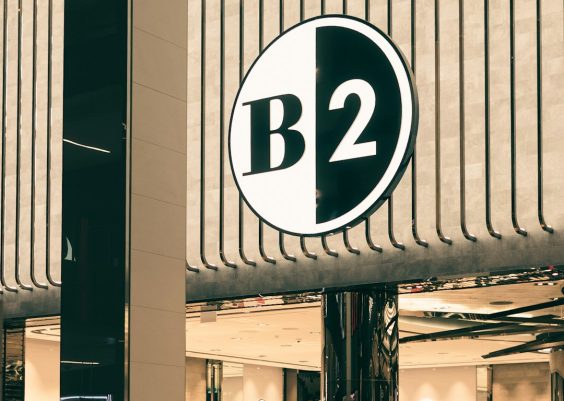Competitive Commander, or cEDH for short, is the high-octane subset of Magic: The Gathering’s Commander format where efficiency, speed, and interaction dominate deckbuilding philosophies. While it’s known for featuring some of the most powerful and expensive cards in the game, there’s a growing community recognizing the potential of budget-friendly decks that can hold their own at competitive tables.
This article explores the evolving world of the cEDH database and highlights several budget-conscious decks that have not only proven themselves in theory but have actually won games at competitive pods. With the right strategy and careful card selection, you don’t need a $3,000 deck to sit at the big kids’ table.
Contents
What Is the cEDH Database?
The cEDH Deck Database is a curated and collaboratively maintained repository of optimized Commander decks tailored for competitive play. Community members, many of whom are prominent players and theorists, contribute their lists, providing explanations, win conditions, and strategies. These decks are vetted for consistency and viability in competitive settings, where turn-four wins and efficient interaction are the norms.
While many of these decks feature powerhouse staples like Mana Crypt and Timetwister, an increasing number of budget entries have emerged, designed to circumvent the price barrier without sacrificing win percentage. These lists demonstrate creativity, innovation, and a deep understanding of card synergy — proving you don’t always have to pay a premium to compete at a high level.

Why Budget Decks in cEDH Matter
A common misconception is that cEDH is a “pay-to-win” environment. While having access to the full breadth of reserved list cards and fast mana certainly helps, that’s not the full story. Players with limited budgets are still able to achieve speed and consistency through:
- Careful curve construction
- Clever win conditions
- Utilizing lesser-known cards with interactive potential
- Building around commanders with inherently powerful abilities
Budget decks are crucial for the health and inclusivity of the format. They serve as an on-ramp for new players, offer a challenge to seasoned deck builders, and enrich the metagame by introducing lesser-played strategies that can catch opponents off guard.
Top Budget Competitive Decks Found in the cEDH Database
Here are a few impressive lists from the cEDH database that cost significantly less than their top-tier counterparts but punch far above their weight class.
1. Yisan, the Wanderer Bard – Creature Toolbox
Approximate cost: $400–$500
Yisan operates through a linear curve of tutor chains, setting up win conditions with remarkable consistency. He avoids reliance on expensive noncreature spells by exploiting green’s creature tutoring power and mana dorks for ramp. This deck can lock down a board state while assembling a win with cards like Kiki-Jiki, Mirror Breaker and Village Bell-Ringer.
Key strengths:
- Repeatable tutor engine in the command zone
- Resilient to single-target removal
- Can threaten wins without drawing attention
2. Magda, Brazen Outlaw – Dwarf Combo
Approximate cost: $300–$450
Magda turns small creatures into value engines and combo lines. By generating treasure tokens and tutoring for powerful artifacts, Magda decks can win unexpectedly through cards like Clock of Omens and Staff of Domination. Being mono-red allows budget decks to stay within limits while maximizing efficiency.
Why it works:
- Commander is both ramp and a tutor
- Low color complexity reduces need for expensive lands
- Underplayed strategy, often underestimated

3. Rograkh, Son of Rohgahh / Silas Renn, Seeker Adept – Grixis Turbo Ad Nauseam
Approximate cost: $500–$600
This Grixis pairing exemplifies turbo combo. Rograkh brings zero-mana pressure while Silas enables recursion. These decks use efficient rituals, “wheel” effects, and powerful draw spells to dig into decisive combo turns, often revolving around Ad Nauseam and Underworld Breach.
Budget considerations:
- Can substitute the priciest components (e.g., LED)
- Still maintains consistency with backup lines
- Aggressive enough to win in fast pods
4. Tymna the Weaver / Kraum, Ludevic’s Opus – Midrange Interaction
Approximate cost: $600–$750
This list represents an entry point into what might be semi-expensive territory, but it’s a very flexible and consistent build. The key is to use cheaper interaction — replacing Force of Will with Delay or Mana Drain with Arcane Denial, etc. — to maintain a tight control shell while threatening efficient combo finishes via Demonic Consultation + Thassa’s Oracle.
What keeps it budget-friendly:
- Upgradability — start cheap, upgrade as you go
- Low curve creatures generate card advantage
- Combos function without needing all the top-dollar cards
Tips for Building Your Own Budget cEDH Deck
Finding or tweaking an existing list on the database is the best way to start. However, you may also want to explore your own brewing ideas. Here are some tips to keep costs low while maintaining competitiveness:
- Start with a commander that offers value. Ideally, your commander should help you advance your game plan — like tutoring, drawing cards, or generating mana.
- Use efficient interaction and draw spells. Cards like Delay, Swan Song, and Deadly Rollick stay within budget but offer top-tier playability.
- Focus on redundancy. If you can’t afford a $150 instant-win card, use two $5 cards that simulate similar effects together.
- Leverage your mana base effectively. Avoid unnecessary fetch lands and use fast, untapped duals like Luxury Suite or checklands in three-color lists.

Budget Upgrades and Path to Premium
One of the strengths of budget cEDH decks is their scalability. As your investment grows, you can gradually upgrade crucial slots. Here’s a basic roadmap:
| Budget Version | Premium Upgrade |
|---|---|
| Arcane Denial | Force of Will |
| Dark Ritual | Cabal Ritual |
| Boros Garrison | Plateau |
| Kodama’s Reach | Mana Vault |
This gradual improvement model allows players to develop alongside their deck, learning lines and interactions intimately before committing to bigger financial decisions.
Final Thoughts: Winning on a Budget Is Possible
The cEDH Database reflects a broadening of the competitive meta, as creative deckbuilders push the envelope of what’s possible when constrained by budget. Gone are the days when brewers believed you had to own a library full of Reserved List cards to be competitive. Through well-designed mana curves, value-efficient commanders, and a deep understanding of the metagame, players continue to prove that budget doesn’t mean underpowered.
So, whether you’re a new player looking for an affordable way in or a seasoned vet seeking a fresh project, exploring the budget decks in the cEDH database might just lead you to your next favorite brew — and your next big win.




